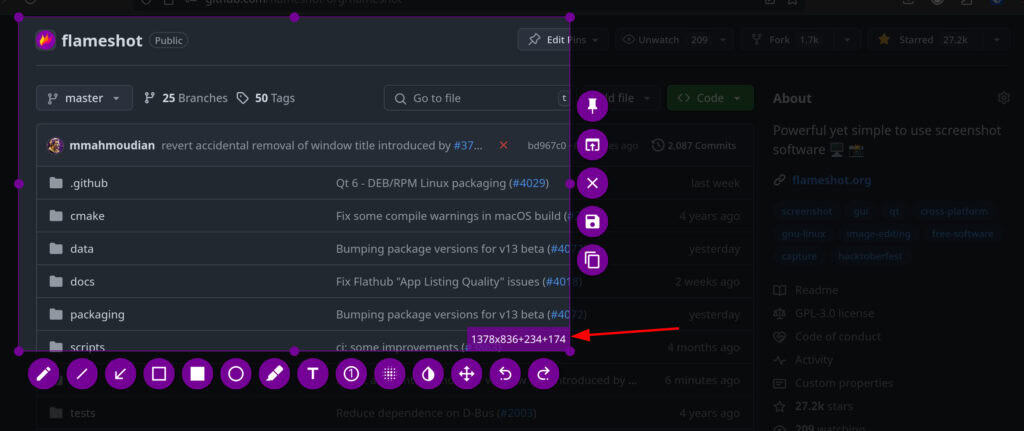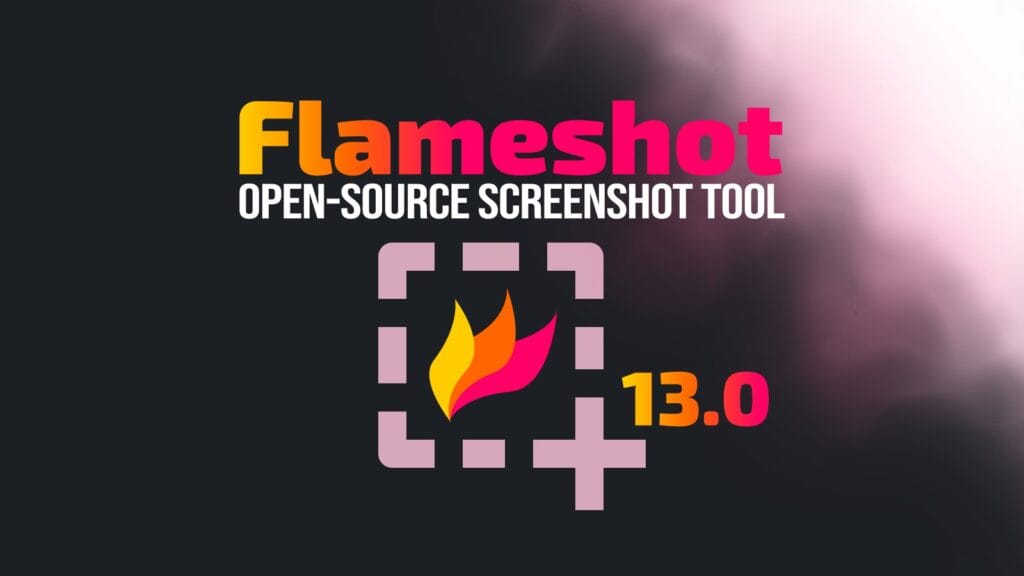After a three-year break, the open-source cross-platform screenshot and annotation tool Flameshot is back, rolling out its version 13.0 beta release, which marks the first major update since the project’s shift to Qt6.
One notable change is the decision to disable the Imgur (an online image sharing and hosting service) uploader by default. The Flameshot team cited privacy concerns and a commitment to maintaining the software’s lightweight nature as their reasons.
So, users who still need the Imgur uploader can manually re-enable it during compilation. The uploader functionality is planned to move into a dedicated plugin system eventually.
Apart from that, Flameshot 13.0 introduces several new features aimed at improving usability and functionality.
Highlights include interactive screenshot dimension displays, a secure pixelation tool that prevents accidental exposure of sensitive data, the ability to rotate and add transparency to pinned images, and improved support for Wayland compositors through a new grim-based adapter.

Windows and macOS users also benefit from this update. MacOS builds are now natively aarch64, eliminating the need for Rosetta, and the clipboard now supports JPEG images. Windows users will appreciate WebP format support, enhanced dark mode compatibility, and the availability of a command-line interface.
Configuration and accessibility received attention too, with the ability to symmetrically resize images while preserving aspect ratios, improved keyboard navigation, and customizable screenshot quality settings. Flameshot also integrates KDE Connect for easier sharing, though this feature remains under active testing.
Lastly, the team noted that multi-monitor setups and certain confined apps on Ubuntu continue to pose challenges. They provided a temporary workaround command for flatpak permission issues, with promises of a comprehensive fix planned for the next major release, version 14.
For more information, see the changelog.
Flameshot 13.0 beta is available for download and installation on Linux (DEB and Flatpak or via distro’s package managers), Windows, and macOS, as well as source code for those who want to compile it themselves. Snap packages might be dropped unless someone steps up to resolve confinement issues.
